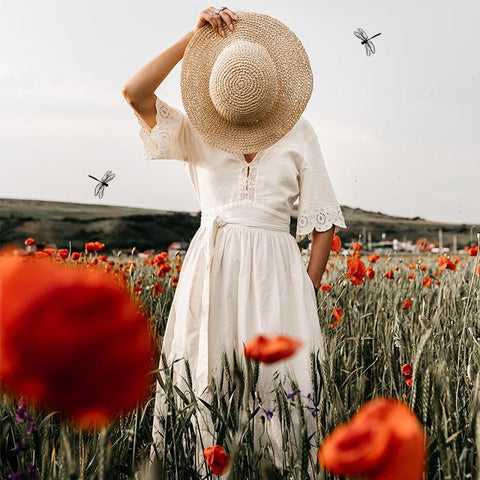
In the calm of the woods and the back of the countryside, they work in silence so as not to disturb the birds. Without them, there would be no active ingredients in creams, no wonderful smells in skincare products, no Birch Sap in our products.
We don't often think about them, but they are nevertheless at the origin of everything. Almost the origin of the world in that the first humans on Earth quickly realized that gathering was their primary means of survival.
Wild plant gatherers are sometimes looked upon as saints, sometimes as madmen. Do you make a living picking mallow or arnica? Do these Women and Men refuse the modern world? Aren't they part of those originals that save the planet?
Saeve would be nothing without the passionate work of Luc Jalenques. Our plant picker, who harvests Birch Sap and organic Chaga from our Immunox ® patent . Without it, no miracle on your skin.
He is based in Aurillac, in the Cantal, where it is cold as he likes to recall, in the depths of the Auvergne of our Pauline, founder of the brand. Driven by family habits and traditions, it was she who sought out Luc. Saeve could not exist without her voluntary hands capable of recognizing and harvesting the treasures of nature.
We are talking to you today about the profession of wild plant picker thanks to which Saeve can offer all her wonderful treatments.
1 – Plant picker with committed values
Perhaps because they are called "landless peasants" and they are dependent on the random generosity of the soil... Perhaps because harvesting is a humble and delicate act... Perhaps because over the years of practice, they see ecosystems change and not always in the right direction...
Plant pickers are first and foremost nature lovers. Their work colleagues are the trees, the birds, the bees… So how not to develop the desire to promote the preservation of nature and biodiversity?

Currently, the trade is taught in agricultural schools. Learn all about plants and their uses. For some, the love of picking is transmitted from generation to generation. We observe a grandmother who picks St. John's wort and this great-uncle who swore only by hawthorn blossoms… In the spring, we make Dandelion jellies. In August, lavender and lemon verbena are dried for infusions. In winter, the fruit of the rosehip is eaten.
For others, the revelation comes from the fact that progress and urban modernity lead to a vital need to return to the land. But for everyone, it is another value that is then put in place: that of inviting others to feed on living things and to vegetate their lifestyle .
With the countryside as their only office, our pickers are true observers. Harvests vary according to climatic and environmental conditions. They observe, scrutinize, breathe, condition their outings according to the seasons, the moons and the rains. They are the greatest witnesses of the changes of our Century. They are the best sentinels of ecology.
2 – Gatherer with ancestral gestures perpetuated

3 – Picker with the gift of self and love
Choosing to live from wild plants means taking or picking from sites far from any toxicity and human presence, far from polluted roads and intensive crops. This obviously means getting off the beaten track and going on long crossings and hikes. First empty, the canvas bag becomes heavier and heavier worn on the shoulder.
To be a wild plant gatherer is to get up early to beat the paths, to go on the road, sometimes not to sleep at home or even to sleep on the way because you have to harvest in the morning before dawn. Even if it is in the open air, the body wears out in another way: back bent in the wind, eroded knees, hands damaged by repetitive movements or burned by active ingredients. Let's not forget the cold, the rain, the walk, the altitude. Let's also think of those periods when the plant is at its peak of strength and when it does not wait. No weekends or holidays.
If the profession of picker were told to us, it would probably be with all its magic: calm, nature, steely mind, inexhaustible herbalist knowledge. But it would be above all through the love of the living and all the self-sacrifice he can show to make us benefit from it.
Don't we say that in the field of the Universe, you reap what you sow?
The T[æ]m






Comments (0)
There are no comments for this article. Be the first one to leave a message!